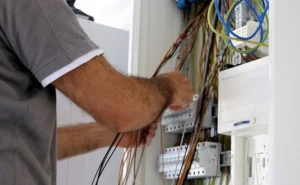Have you ever listened to some music and felt the need to recover from your addiction? Did you know that music therapy is an excellent tool for healing the body and mind? Studies have shown that listening to music has a profound effect on the brain, especially on the areas of the brain that deal with emotion, creativity, memory, creativity, fertility, and even spirituality. It’s also been proven that music has a profound impact on one’s ability to let go of unwanted patterns of behavior and develop healthy ones.
For centuries, music was used by musicians to create healing and meditative music. During the middle ages in Europe, monks would use music as a healing tool to help their spiritual practices. Since then, music has been used for healing in many different cultures and can be used today in the same ways it was used in the past.
In the past, people were encouraged to write down their intentions of quitting their addiction. If you wanted to recover from heroin addiction, then you would write down the things that you liked about your past drug experiences- the places you went to parties, the drugs you snorted during the weekends, and the music you listened to while doing drugs. This exercise is meant to spark your imagination and get you thinking about the things you want to do when you’re free from addiction. The alcohol help NZ might then use this writing to create music therapy sessions for your recovery.
Now, a lot of people who want to use music in their addiction recovery aren’t necessarily music enthusiasts. They may listen to background music or non-metal music in their therapy sessions. However, these people are missing out on an opportunity to really delve into the effects music has on the human brain. Because of this, music can have a powerful influence on your progress through treatment and aftercare. The more you experience music as part of your addiction recovery, the more deeply you’ll understand how it can help you heal in a new way.
For instance, if you listen to hard rock music during your therapy sessions, you’ll be tapping into your hard drive and your brainstem in a new and different way. While your normal response is to focus on the lyrics of the song and decipher its meaning, listening to music in this manner stimulates new connections between your hearing and visual systems. You’ll also likely find yourself hypnotized by the words and music in your brain.
Finally, you’ll realize that you’ll be able to remember much better and have a greater ability to recall information. This way, gradually, music will help you to get rid of addiction.






